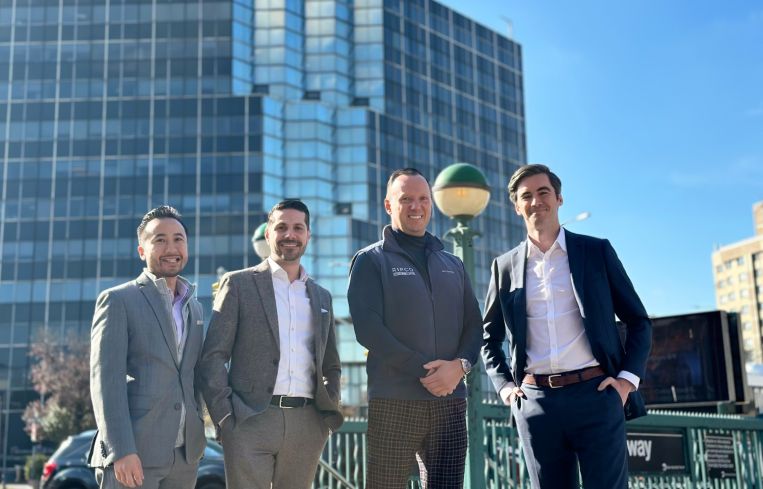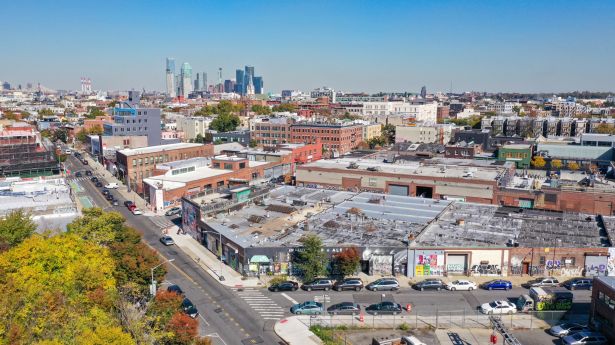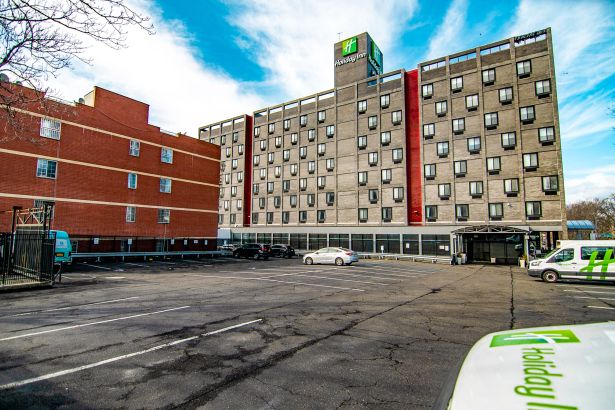Presented By: Ripco
How RIPCO Real Estate Prospered as a Challenging Year Played To Its Strengths

This year saw a fundamental shift in the New York City investment sales market as the dominance of institutional buyers diminished, with private buyers such as family offices coming to greater prominence.
Ripco Real Estate, one of New York’s leading investment sales firms, said that the shift played to their strengths, leading to a strong year in sales.
“We are generally a mid-market focused firm, and what we’ve seen is that institutions are playing more defense with their portfolios right now rather than going on the offense and acquiring new products,” said Stephen R. Preuss Sr., RIPCO’s Vice Chairman of Investment Sales, and a leading capital markets broker in NYC for nearly the past two decades. “Lenders are also taking a very conservative approach on larger loan tickets, which handicaps higher-price-point focused purchasers. Additionally, many equity groups can’t pencil to their typical timeline horizons for returning capital to their investors due to the market turbulence. This really opened the door for our bread and butter, which is long-standing family offices and generational buyers who often focus on local acquisitions within their own sub-markets within the $1M-$50M range. This is the first time we’ve seen the private investor surpass the institutional investor as far as overall deployment of capital in our markets, so that’s quite substantial.”
At this time, RIPCO’s investment sales team is on track to surpass 60 transactions for 2023, totaling over $600 million in aggregate volume. While the number of larger ($100M+) transactions has diminished given current market conditions, RIPCO still saw more than their share of transactions over $50M.
“We’re probably down 15 to 20% year-over-year, but we believe that’s favorable considering that most New York City brokerages are down 80 to 90%,” said Preuss. “We’ve had several transactions of note, including two market-moving $80 million transactions. We had an outer-borough industrial portfolio sale on Northern Boulevard in Queens that incorporated about five separate buildings with a covered land aspect – which we are seeing to be a frequent requirement. We also have an upcoming sale in Northern Queens, in the Flushing market, for $82 million, which is a straight ground-up development being sold to a user.”
Preuss emphasizes that given RIPCO’s performance versus the market and the shift toward a buying class that plays right into the company’s strengths, RIPCO views 2023 as a successful year that is setting them up for a prosperous future in 2024 and beyond.
“Unlike publicly-traded brokerage houses that are downsizing and cutting costs, we’re growing,” said Preuss. “We’re investing, we’re upsizing, we’re cherry-picking a lot of the available talent currently in play. We’re looking at this year with a stable and well-balanced approach. We’re focused on the next few years as a huge opportunity not only to bolster our team, but to embrace our strengths in the turbulent market with our asset-agnostic approach and synergy across our service lines.”
This sense of success and optimism permeates the firm.
RIPCO Vice President Kevin Louie is focused on the resurgence of the hotel market from its prime COVID-era doldrums, noting that hotel occupancy in New York is at 90% of its pre-pandemic numbers and rising.

“Our team has sold two of the largest hotel conversions in NYC over the past twelve months, totaling more than 500 keys and exceeding $100 million in aggregate value,” said Louie, referring to two properties near LaGuardia Airport: 37-10 114th Street, a former Holiday Inn, and 90-10 Ditmars Blvd, a former Courtyard by Marriott.
While Louie feels that talk of conversions has compressed the market overall, with sellers sitting on potentially salable product, the potential for market growth is significant once properties shake loose.
“The appetite and demand for similar assets seem to be insatiable, but there’s a lack of inventory out there,” said Louie. “I wish I had more product to market now, but I’m confident we will soon.”
On the multifamily side, the expiration of the 421a Affordable New York program, along with the June 2026 deadline for participating properties to receive their TCOs, has led to opportunity for RIPCO’s sales team.
“Our team has seen a surge in demand for shovel-ready sites and in certain cases, low-density zoned land for bulk single-family home developments,” said RIPCO Vice President Andreas Efthymiou. “We are currently involved in marketing over $250 million worth of these types of assets throughout Long Island City, Astoria, Mill Basin, and Fresh Meadows and several other similar markets.”
While the program’s expiration, combined with rising interest rates, has certainly left any investment sales team confronting challenges, Efthymiou said that RIPCO’s I-sales team has capitalized on the turmoil, in part by getting creative.
“It’s been a bit difficult to get these types of deals across the finish line. There have been hurdles, for sure,” said Efthymiou. “But through the third quarter, we’ve sold roughly $100 million worth of development sites across over a dozen different deals, and have several other sites under contract that should be closing toward the end of the year. We’ve been involved with a lot of condo development sites where the tax liability will be passed through to the end buyer, as well as several bulk single-family home development sites.”
Given the multitude of current market challenges, RIPCO Vice President Kevin Schmitz notes that the development character of some of the areas the company focuses on in Brooklyn and Queens has shifted.

“There’s a gap in developers who can execute in certain submarkets like Jamaica or East New York, areas that really need it,” said Schmitz. “Non-profit affordable housing developers would often get outbid on price point. But now, other developers can’t execute in those areas due to the expiration of 421a, so non-profit developers have an interesting opportunity there since they have access to different types of funding sources, like from The Corporation for Supportive Housing.”
Preuss sees continued challenges ahead for the industry in 2024, and anticipates RIPCO prospering as they continue to adapt to market circumstances in ways that perfectly match their vast investment sales experience.
“A tremendous share of the activity in 2024 will be due to some variation of distress, whether it’s bank sales/REO, short sales, workouts, or foreclosures,” said Preuss. “While this may not be favorable for owners waiting for 2018 pricing to return, it should make the market more transactional, increase needed volumes, and push forward the inevitable resetting of values throughout most asset classes, bringing proper activity levels back to New York City and the NY Metro Area.”



